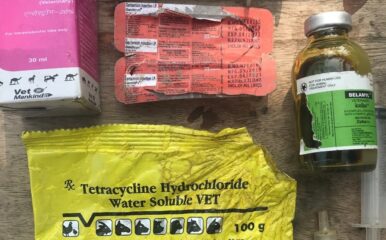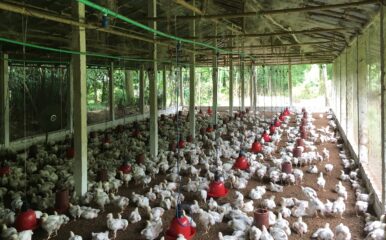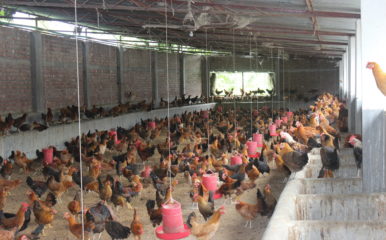
Protein, pandemics and why the world needs to look beyond preparedeness
Published on 05/11/2020
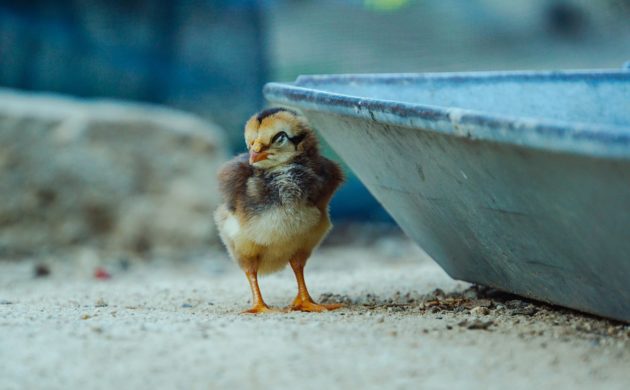
Tony Pham/ Unsplash
‘Pandemics – past, present and future’… and there it is, a tragedy captured in a title. But more of that shortly.
Sitting down to write a companion blog to the next event in the One Health Poultry Hub Roadmap Series of discussions poses a challenge with the need to trail the issues up for discussion without pre-empting the discourse and debate the topic deserves. However, serving up an appetiser without upstaging the main dish is an attractive metaphor that plays nicely into a few fundamentals that can set the scene.
So, taking a slightly different tack, here they are:
- With the need for protein and micronutrients of animal origin a fact of life for the foreseeable future on a planet with a ballooning and geographically heterogeneous population, the role of disease will be critical.
- Most of the growth in demand for this protein will be in low- and middle-income countries (LMICS).
- Production of animal protein is costly on several levels – for example in terms of water consumption or carbon footprint – and the choice of system and species is important.
- Inefficient production of animal protein is even more costly and disease compromises efficiency enormously.
- The areas of our planet that have greatest population growth, where animal protein will be most in demand, are the areas least well served by the animal health industries.
This. Is. Not. News.
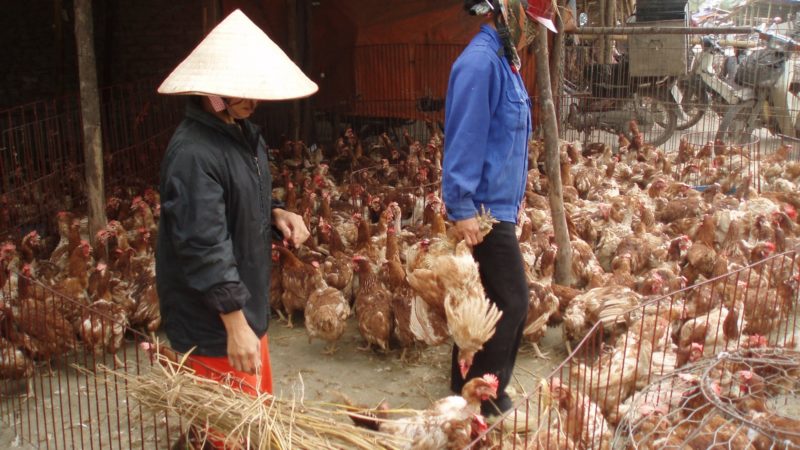
We have an issue. We are going to be trying to increase production of foods of animal origin and control animal disease in food production systems in geographical locales where veterinary and associated services are least well developed.
These areas are also hard hit by climate change, and this together with rapid land-use changes can result in physical proximity of domesticated animal species and wildlife. Pandemics are likely.
Without referencing any of the species involved – and perhaps with only passing mention of rinderpest, avian influenza, swine fever, foot and mouth disease, antimicrobial resistance … the list is a long one, – one can imagine that protein supply might be an issue. The importance of initiatives like the One Health Poultry Hub cannot be over-stated. And we haven’t even got to the One Health piece yet.
Disease spillovers
And so, what of humans? Of course, I defer to my medical colleagues and infectious disease specialists, but from a zoonotic disease perspective, and with SARS-CoV-2 running rampant as I write, it is clear that the pandemics associated with pathogens that may have their genesis in animal populations (zoonoses) are capable of doing much more than disrupting food supply.
Whether directly from farmed animals or from wildlife reserves, we know that some pathogens already infect humans and for other hosts spillovers are not only possible but also probable. The fact is that the mechanisms of interspecies spread are rather inefficient and most will go nowhere. We have been, and continue to be, lucky.
Yet there are parallels, if not exact analogies, with several of the fundamentals listed above. The growth, the need, the paucity … all apply equally to the availability of human healthcare systems. The Venn diagrams for host, pathogen and environment are identical for the two settings and should be, in reality, one. And fortunately, so too, can be the approaches to control.
One Health
Finally, then, to One Health – the issue we should definitely be regarding as central to the main course of our menu-formatted metaphor. True, the animal, human, environment triumvirate is the cornerstone on which we have come to talk about the blurring of the divides we artificially insert into the ecosystem of pathogen epidemiology. However, the FAO brings three-dimensional relief to the characterisation of both problem and solution.
With a mindset that considers technical-, behavioural- and institutional-level interventions, we are immediately freed from the constraints of our own species-specific disciplines and professions and are charged to work with others to create new ways of thinking, new approaches, new science, new lexicons and, most importantly, holistic solutions. Actually, solutions; holistic is a bonus.
So why the opening line? Well it is this: If we have gleaned anything from the last few months, it is that we have learned very little from the pandemics of the past. All our previous experience would suggest that whilst predicting the ’when’ and ‘where’ is something with which even our modellers struggle, there is no doubt that preparedness and rapid intervention are the key elements necessary for controlling a pandemic. Yet it is One Health that is key for prevention.
For certain, the current pandemic will pass but there will be others that society will face. And these will be every bit as bad as, if not worse than, COVID-19. The tragedy is that, unlike the stock market, when it comes to decision making and long-term planning, past performance is a very good predictor of future results.
But back to the importance of the One Health Poultry Hub and the issue of addressing protein supply in a fashion that is efficient, scalable, environmentally sustainable and resilient to pandemics ….
We can do better.
We must do better.
It’s time to take One Health seriously.
And a footnote. If you think that these issues only apply to LMICs, consider the supply chains that must exist to bring the thousands of tonnes of beef and chicken, the millions of eggs and litres of milk, daily into a city like London or New York. Certainly, in the UK, I strongly suspect that the early months of 2021 will illustrate just how quickly these chains can be disrupted and how quickly a national diet will be depleted of micronutrients when new trade barriers are introduced. But that is another story. Imagine if there was to be a pandemic at the same time. Oh wait …
Stuart Reid is a panellist in the next discussion in our Roadmap Series for the future of poultry, people and planet. Pandemics: Past, present and future, also with author Heather E Quinlan, and moderated by One Health Poultry Hub Director Professor Fiona Tomley, of the RVC.

